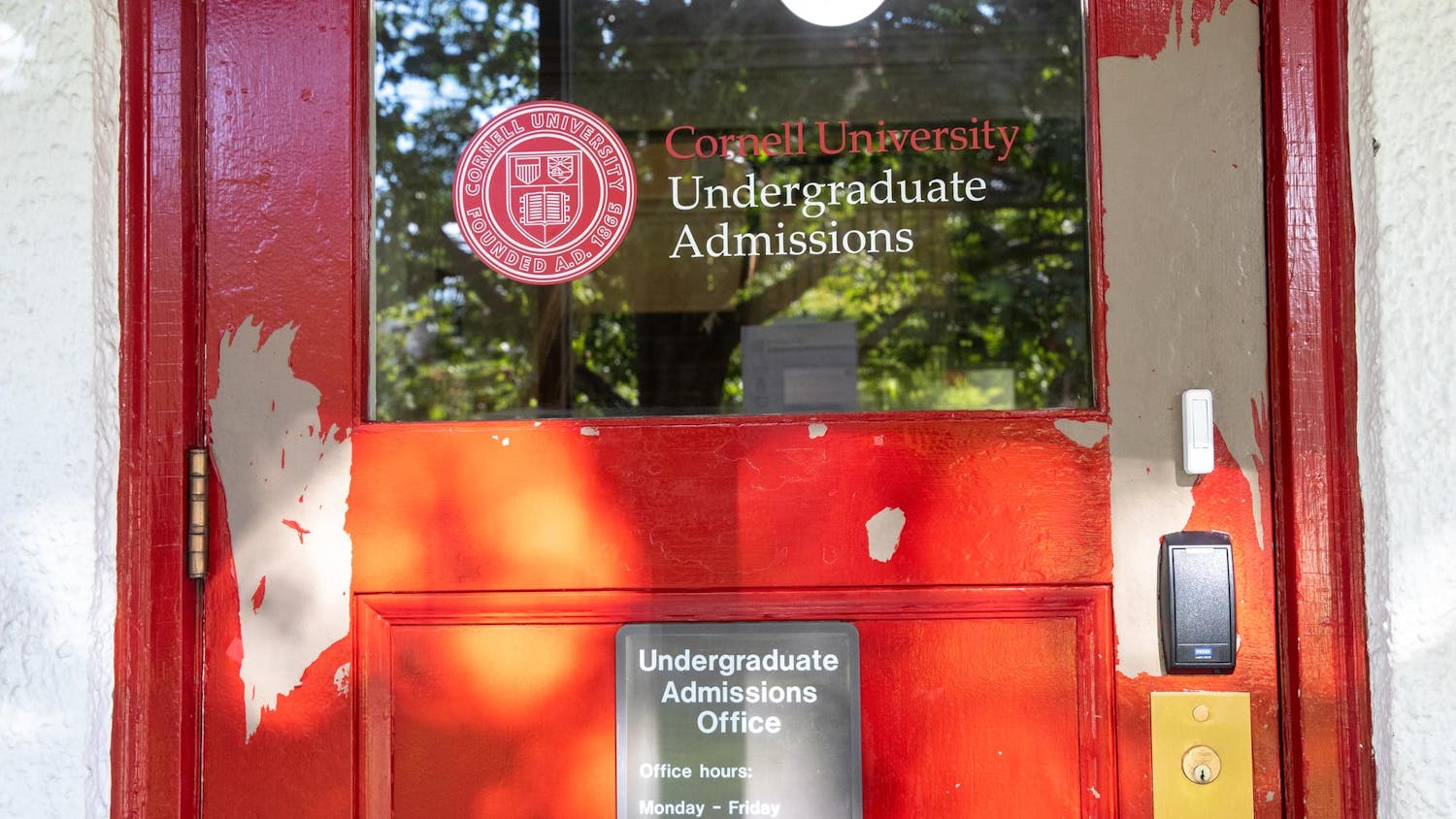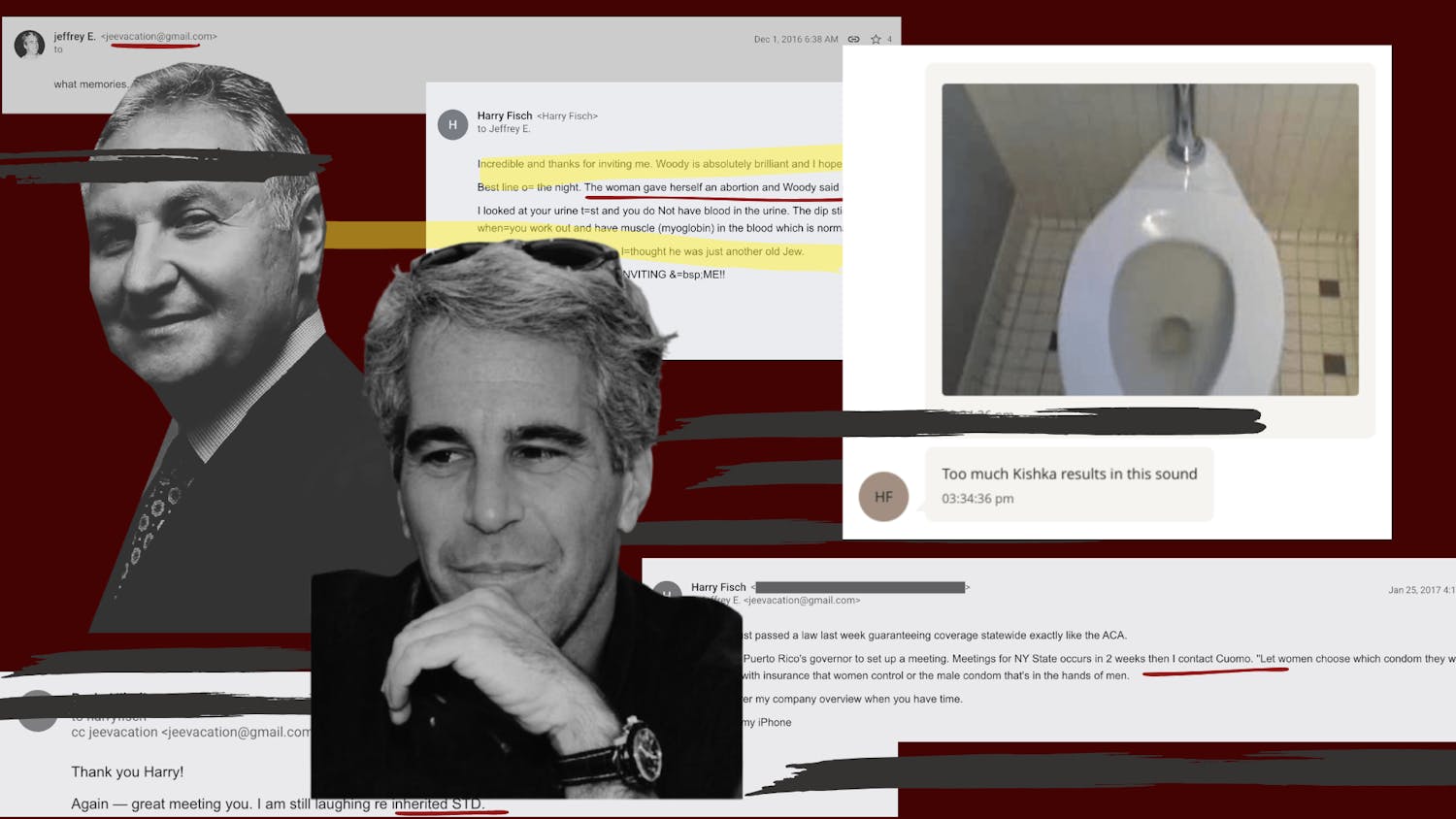Students for Justice in Palestine held a vigil to mourn the loss of Palestinian and Israeli lives in the ongoing Israel-Hamas War — which has killed 2,383 Palestinians and 1,300 Israelis — on Friday, Oct. 13. Roughly 200 students, faculty and community members shaped into a circle at Ho Plaza, and the event commenced after a collective moment of silence in honor of those killed.
Malak Abuhashim ’24, President of the Students for Justice in Palestine and the Arab Student Association, spoke about her family currently residing in Gaza, many of whom she has lost contact with due to the evacuation as well as internet and data service cuts for many in the area.
“My cousin is the same age as me and has already experienced six to seven wars. I remember one time my dad was calling our family and we were worried about them and we could hear the bombs in the background,” Abuhashim said. “My cousin told me, ‘Don’t be scared. If I die, at least I died for my country. I died for a good cause.’”
On Saturday, Oct. 7, Hamas stormed into southern Israel, killing nearly 1,300 Israelis. In response, Israel’s Prime Minister Benjamin Netanyahu cut off food, water, electricity and other supplies from entering Gaza. Nearly half of Gaza’s population of 2 million has been displaced, and 77 percent of households rely on foreign aid.
Friday’s vigil came mere hours after the Israel Ministry of Defense and the Israel Defense Forces issued a directive calling for the evacuation of 1.1 million Palestinians residing in the northern region of Gaza. The IDF formally notified the United Nations that Palestinians were required to evacuate within a 24-hour timeframe. Hamas told civilians in northern Gaza not to heed the evacuation call, despite concerns about an Israeli occupation of Gaza. Many chose to evacuate despite Hamas’s statement, some of whom were killed on their way by Israeli airstrikes.
Throughout the evening, students expressed frustration with Cornell and President Martha Pollack’s actions surrounding her response to the conflict. Pollack released two statements, neither of which included the words “Palestine” or “Palestinians.”
Bianca Waked grad broke into tears as she spoke. “This institution has failed us. It has failed every Arab and Muslim student. And there’s no denying that. They have failed the Palestinians who have no voice,” she said.
An international Cornell student, who requested anonymity due to privacy concerns, stood firm against Pollack’s omission of the word “Palestine.”
“[I say this] at the risk of losing my Visa as an international student, at the risk of losing my funding, at the risk of being deported from this country — your silence is saying that Muslim bodies do not matter to you, that Palestinian bodies do not matter to you,” the student said.
The student urged Pollack to acknowledge Palestine, saying, “I will implore you to do better. I will implore you to say something, Martha. Say the word Palestine.”

A faculty member stood up in solidarity with the students, urging them to spotlight their Palestinian identities. “Your $80,000 [tuition] is the same as anybody's $80,000...You demand to be called Palestinian. You stand up in front of the office and you say my $80,000 is from my Palestinian father and mother.”
One student, who did not provide their name, emphasized the urgency of the crisis in Gaza’s hospitals, where around 2,000 individuals, including children, are in the ICU making them unable to evacuate.
“They can’t f***ing leave. They’re going to die. So I don’t want to hear what the f*** Martha has to say anymore,” the student said.
Several Jewish Cornell students spoke at the vigil. One Jewish student, who also did not provide a name, reflected on his identity at Cornell.
“I came to Cornell and I was excited about the possibility of having a Jewish community, …but then I saw what that community was like here, the community that was present at the Student Assembly [Thursday] — that’s not a community I want to be a part of,” the student said of the pro-Israel Jewish students who spoke against the SJP bill to the S.A. last Thursday.
The student also criticized the Student Assembly’s recent decision not to consider a resolution sponsored by members of SJP that called on Cornell to “recognize the Palestinian right to resistance and contextualize the violence as a direct response to decades of Israel’s occupation.”
“The Student Assembly is there to represent us but says they don’t want to take a stance — that is B.S.,” the student said.
As students processed these events and their anger with Cornell’s response, some, like SJP member Maryam Ismail ’27, found comfort in the vigil.
“This was a really safe space for people to talk about how they’re feeling and grieve openly, and I think it’s beautiful that people from all different backgrounds came to support each other,” Ismail said. “It’s important, it’s healing and it established a community that people didn’t even think existed here.”
Henry Fernandez ’27 is a Sun contributor. He can be reached at hjf47@cornell.edu.
Douae Maarouf ’27 is a Sun contributor. She can be reached at dm927@cornell.edu.
Correction, Oct. 18, 5:55 p.m.: A previous version of this article incorrectly stated the first name of Maryam Ismail '27. The Sun deeply apologizes for this error.











